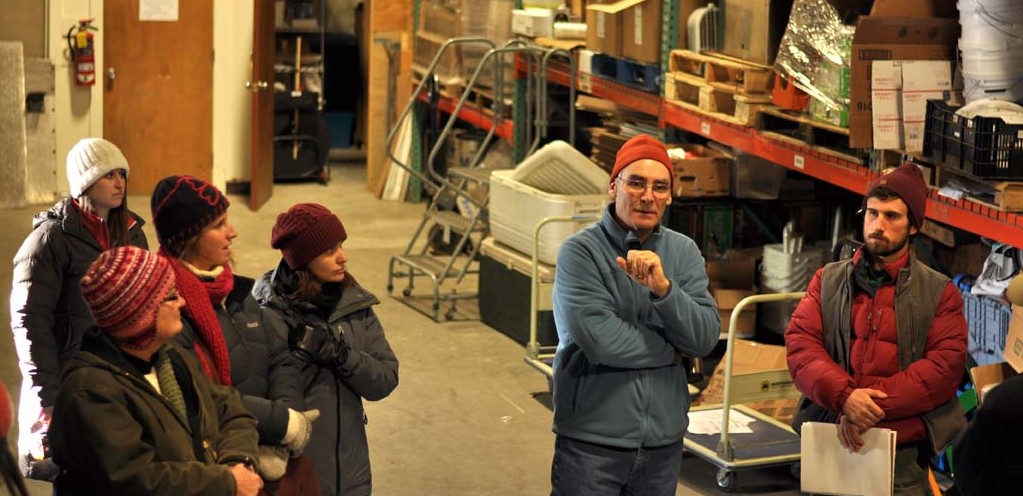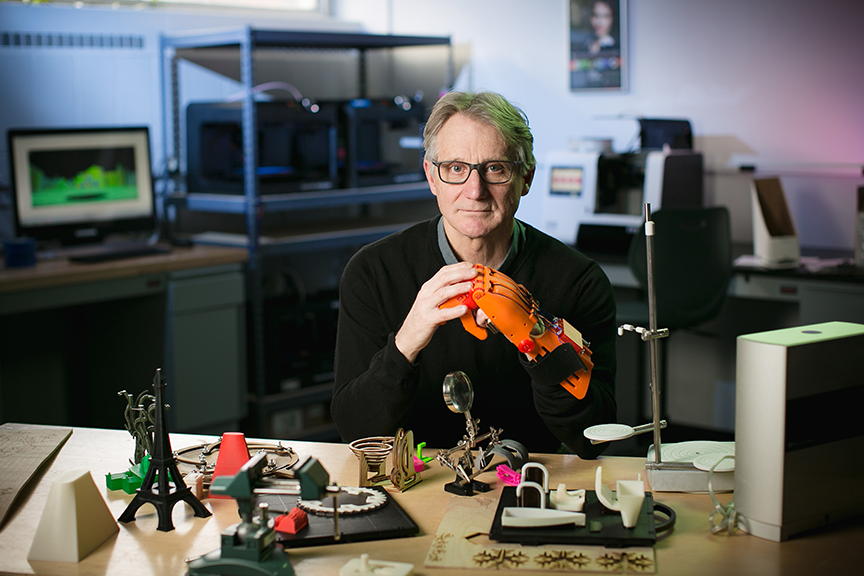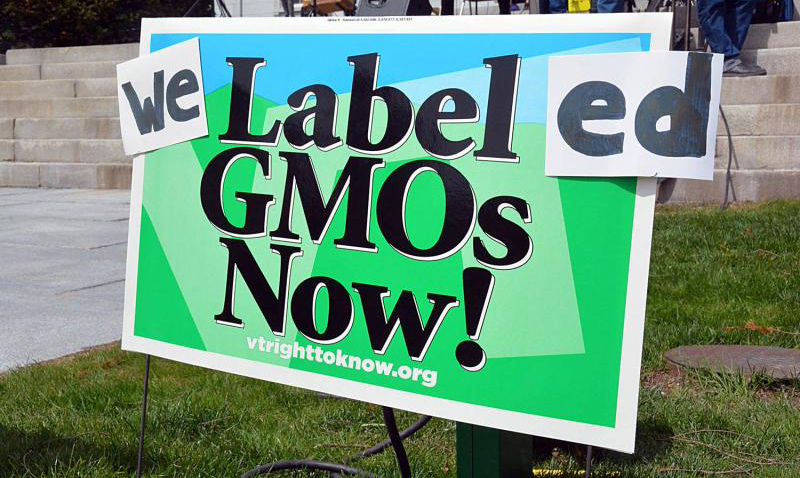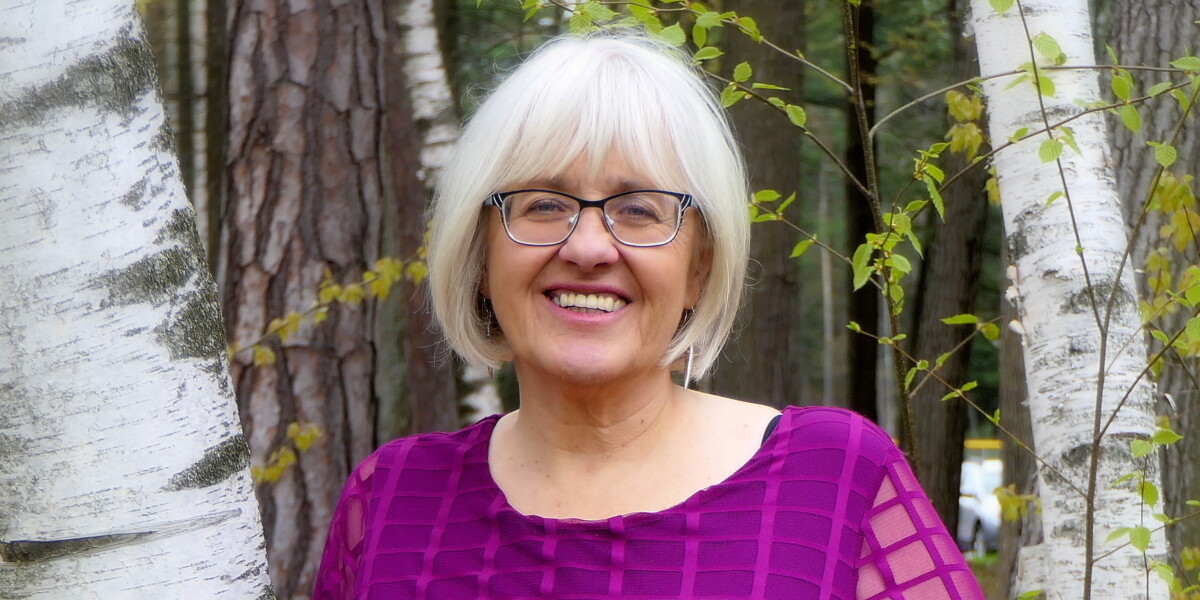The temperature was 12 below when a busload of UVM students arrived at a nondescript business park off Route 100 in Waitsfield.
From the outside, the green, industrial building didn’t look like a thriving food enterprise. But on the inside – with 4,000 square-feet of freezers, storage, a loading dock, and processing space – it became immediately clear to students that local food was the mission.
The Mad River Food Hub hosted 25 students in UVM’s new Food Hub Management Certificate Program for a two-hour tour and Q&A session last week. Students in the program met in Vermont last week to attend lectures and visit local food hubs, distributors, businesses – including The Intervale Food Hub, Black River Produce, and the Mad River Food Hub.
The visits gave students a powerful impression of Vermont’s commitment to the local food system.
“The food hubs we visited this week varied greatly in size, strategy and incorporation, but one common thread was the passion and drive of the managers and employees,” said student Benjamin Bartley, food access director at The Arcadia Center for Sustainable Food & Agriculture in Alexandra, Va. “As one food hub owner explained, this is a dynamic business, built on the strength of relationships. We need more people in the good food movement.”
Touring the Mad River Food Hub
Robin Morris is the founder of the Mad River Food Hub. He is teaching UVM Food Hub Program students two modules on finance in February. Joshua Gibbs, the Mad River Food Hub’s General Manager, will be teaching students about food safety in March. Last week’s tour gave students an up close look at the facility’s operations and space.
Morris, who was instrumental in getting the UVM Food Hub Program established, told students he saw a need to help train food hub employees the essentials of food hub management. High quality staffing is one of the greatest challenges food hubs face and remains a key factor to their success.
The Mad River Food Hub’s facilities and services include shared-use meat and vegetable processing rooms, dry and cold storage, logistics, management, and local distribution. The facility is also a food business incubator that provides producers with the space and equipment to start a business without having to take on debts up front.
“We’re helping early stage food businesses scale up their production to meet growing demand for fresh, local food year-round,” Morris told the students, walking them through a large freezer (formerly owned by American Flatbread) stocked with beef, produce, and dairy.
Open since 2011, the Mad River Food Hub is a fully equipped, licensed vegetable and USDA inspected meat processing facility. It’s currently the only food hub in the Northeast to have a USDA inspected meat processing facility that is available to local farms and meat processors for shared use.
Morris, the former CFO of American Flatbread, told students how helping to build local, small food businesses supports the local economy and increases local food production, thereby contributing to a more robust food system.
Still, with food hubs popping up around Vermont and the rest of the country, Morris told students he needed a way to differentiate his business. He accomplished that by offering meat processing at the Mad River Food Hub.
“There is a clear need for meat processing and distribution in Vermont,” he says, noting that the Vermont Farm to Plate’s Strategic Plan calls for additional meat processing facilities by 2020. “Also, with the short growing season in Vermont, the best way to make the Mad River Food Hub financially viable was to add meat processing. When we included meat into our business plan, we saw that we could be financially viable.”
But it’s not just about the bottom line. “The number one thing you need are customers,” he explained. “Here at Mad River Food Hub, our customers are our partners.”
Finding Success with a Local Food Hub
The focus on customer service is why Greg Bove loves his job. Bove, a UVM alumnus who lives in Montpelier, works for the Mad River Food Hub as the facilities and operations supervisor. He’s also a student in the UVM Food Hub Program.
Bove wears many hats at the Mad River Food Hub. His job mainly involves making sure the production rooms and loading dock are clean and sanitized; stocking the food hub with sufficient paper goods, cleaning supplies, and packaging materials for customers; and helping the food hub’s driver prepare the day’s delivery route.
“My ultimate goal is to maintain customer satisfaction. Our customers rent space in our shared processing facility to create foods ranging from soup to pet food and chorizo to bean cookies,” Bove said. “While each customer is truly unique, all customers require a clean and safe environment to make their goods, a well-orchestrated facility where they can make the best use of their rental time and storage space, and an efficient distribution route for our driver to distribute the goods through central Vermont.”
Bove echoes Morris’s commitment to the importance of building and maintaining relationships with food producers, farmers and customers.
“While working here at the Mad River Food Hub, I have witnessed a culture of maintaining long-term relationships with our clients,” Bove said. “Good food is made when you have good relationships. Especially when dealing with local food and farmers, relationships are far superior to rigid rules and binding contracts. Seasonal crops can fail and the winter may take away real incomes. Any good food hub should harbor these enormous risks a farmer takes on independently.”
The Rise of Food Hubs
There are about 300 food hubs around the country. Sixty-two percent of food hubs in the United States have been in existence for five years or less.
By USDA definition, a food hub is a business or organization that actively manages the aggregation, distribution, and marketing of source-identified food products primarily from local and regional producers to strengthen their ability to satisfy wholesale, retail, and institutional demand.
“Food hubs are important because they serve the needs of both farmers and consumers. Our current food system values efficiency and corporate profits at the cost of producing truly safe food and system resiliency,” explained Bartley, the food access director of The Arcadia Center for Sustainable Food & Agriculture. “Food hubs are helping to reverse the commodification of what is inherently best when it’s most fresh and the genuine result of an organic, biological process. Food hubs value source identification, responsible production and farm viability, and these values help to strengthen local communities and the food movement.”
Vermont is home to several food hubs, including the Intervale Food Hub, Windham Farm and Food Network, Rutland Area Farm and Food Link, and Mad River Food Hub.
Vermont food hubs – and their values – are clearly setting an example for the rest of the country.
“Vermont is definitely a beacon of hope for those of us trying to improve our food system,” said student Kim Bayer, who is involved on developing the Washtenaw Food Hub in Ann Arbor, Michigan. “The growing mainstream support for local food, the diversity of food hub business models, and Vermont’s progressive legislative support and funding for its food community in general are all very inspiring.”




